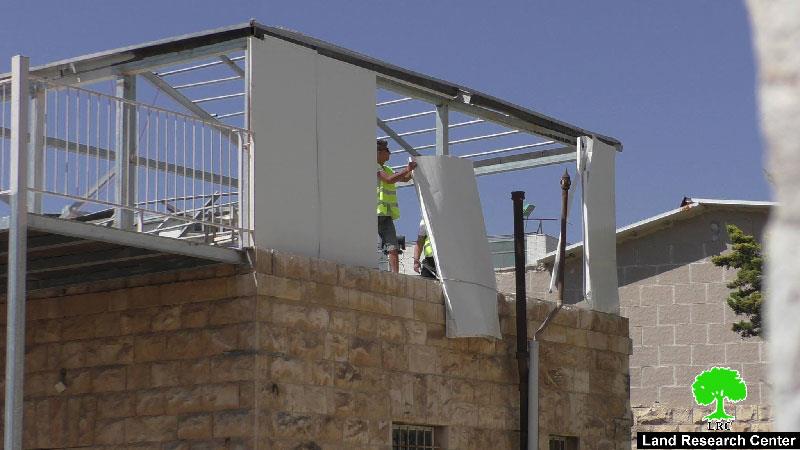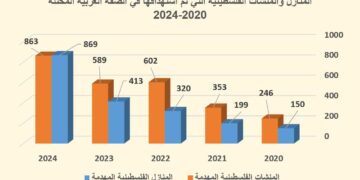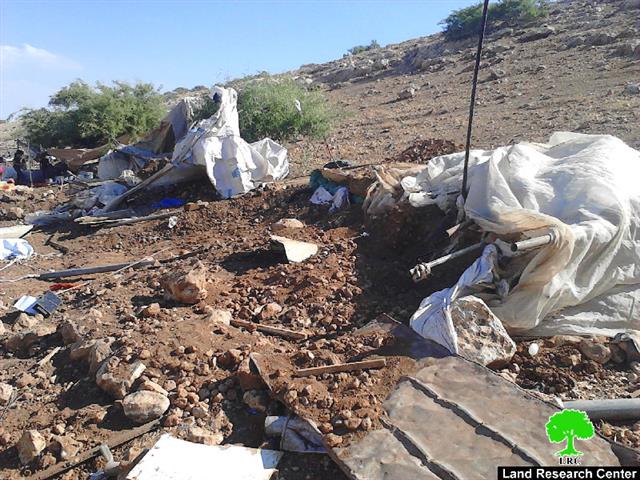The municipality of the Israeli occupation on June 04, 2015 demolished a facility relative to a residence, which is located in Saladin Street in occupied Jerusalem under the pretext of “unlicensed construction”. Noteworthy, the residence belongs to Citizen Rafiq Salaymeh.
Citizen Salaymeh told a researcher from Land Research Center the following:
“This residence has been here since long ago; my 10 member family including 8 children and I reside in there. Because of the small space of the house, I annexed an 80m2 structure that is roofed with bricks to get the feeling of spacious and comfortable house”
He also added: “At morning, we were surprised when a force from the occupation municipality and police raided our house and sent us out of it by force. The force dismantled the annexed part where we stayed in the street during the operation”.
Land Research Center LRC sees that demolitions contradict with and violate all of the International conventions and Humanitarian laws including:
- Article 17 of the (1948) Universal Declaration of Human Rights stating: “Everyone has the right to own property alone as well as in association with others. No one shall be arbitrarily deprived of his property.”
- Section ‹G› of article 23 of the (1907) The Hague Conventions asserting: “In addition to the prohibitions provided by special Conventions, it is especially forbidden to destroy or seize the enemy's property, unless such destruction or seizure be imperatively demanded by the necessities of war.”
- Article 53 of the Geneva Fourth Convention (1948) declaring: “Any destruction by the Occupying Power of real or personal property belonging individually or collectively to private persons, or to the State, or to other public authorities, or to social or cooperative organizations, is prohibited, except where such destruction is rendered absolutely necessary by military operations.”
- Section 1, Article 11 of the International Covenant on Economic, Social and Cultural Rights (1966): “The States Parties to the present Covenant recognize the right of everyone to an adequate standard of living for himself and his family, including adequate food, clothing and housing, and to the continuous improvement of living conditions. The States Parties will take appropriate steps to ensure the realization of this right, recognizing to this effect the essential importance of international co-operation based on free consent."
Prepared by
The Land Research Center
LRC














